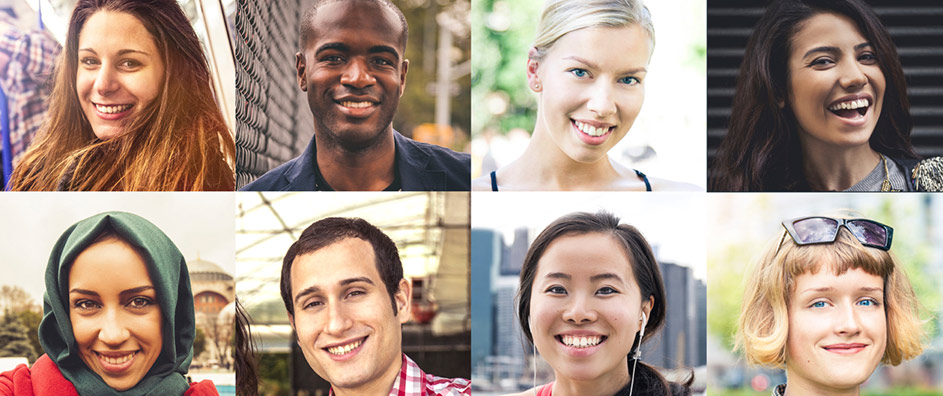In a world beset by the tempestuous currents of misunderstanding and division, the Baha’i teachings emerge as a beacon of hope, illuminating the path toward a more inclusive and compassionate society. To see beyond stereotypes is not merely an aspirational goal; it is a fundamental tenet of the Baha’i Faith, which emphasizes the inherent dignity and worth of every individual. This guide explores practical ways to transcend stereotypes, encouraging a deeper appreciation of the rich tapestry of human diversity.
1. Cultivating Empathy
Empathy serves as the lifeblood of human connection. The ability to genuinely understand and share the feelings of another transcends the superficial barriers that stereotypes erect. Through the lens of Baha’i teachings, empathy may be viewed as an essential tool for spiritual development and social harmony. To cultivate this virtue, one might engage in active listening—giving full attention to the speaker without the cacophony of preconceived notions and judgments interfering. Maintain an open heart, which acts as a receptacle for new ideas and perspectives, thereby reshaping the framework through which we view others.
2. Embracing the Journey of Knowledge
Knowledge is a formidable antidote to ignorance, and ignorance frequently gives birth to stereotypes. The pursuit of knowledge—an indispensable aspect of the Baha’i Faith—compels individuals to engage with different cultures, histories, and philosophies. This exploration is akin to peeling the layers of an onion; each stratum revealed is a novel insight that enriches one’s understanding of the intricate nature of humanity. By dedicating oneself to lifelong learning, one may dismantle the stereotypes that cloud our perception and foster a more nuanced appreciation of diversity.
3. Engaging with Diverse Communities
Integration into diverse communities provides fertile ground for personal growth and understanding. Participation in interfaith dialogues, cultural exchanges, and community service initiatives allows individuals to forge connections across cultural and ideological divides. These interactions are analogous to a vibrant mosaic; each piece contributes to a greater whole, illustrating that our differences are not divisible but rather complementary. Baha’i teachings encourage involvement in community-building efforts, emphasizing that unity is not the mere absence of conflict, but the presence of a shared commitment to elevating the collective human experience.
4. Reflecting on Personal Biases
Self-reflection serves as a critical mechanism in the quest to see beyond stereotypes. An individual must first confront their own biases, which often linger in the subconscious, shaping perceptions and attitudes without conscious awareness. Baha’i teachings advocate for an honest appraisal of one’s thoughts and behaviors. Journaling can be an invaluable practice in this regard, allowing for introspection and the recognition of patterns that contribute to stereotypical thinking. Acknowledging personal biases paves the way for genuine transformation, a process likened to the metaphor of a garden: weeds must be meticulously uprooted to allow the flowers of understanding to flourish.
5. Advocating for Justice and Equity
The pursuit of justice is a cornerstone of Baha’i principles, reinforcing the significance of advocating for equitable treatment of all individuals. Stereotypes often perpetuate systemic discrimination, leading to the marginalization of certain groups. It is imperative to not only challenge personal biases but also to confront societal injustices. Baha’is are encouraged to be active participants in fostering a more equitable world—engaging in advocacy work that seeks to dismantle oppressive structures, thereby nurturing an environment where every individual’s voice resonates. This advocacy is emblematic of the Baha’i belief that the well-being of humanity is interconnected and that true progress is realized through collective action.
6. Practicing Forgiveness
Forgiveness acts as a salve for the wounds inflicted by stereotypes, allowing individuals to transcend past grievances and embrace a future marked by unity and collaboration. In times of conflict, the Baha’i teachings remind adherents of the transformative power of forgiveness, which liberates the soul from the shackles of resentment. Practicing forgiveness does not imply complacency with unjust actions; rather, it is an invitation to rise above the negativity that stereotypes engender. When individuals choose to forgive, they create an atmosphere conducive to healing and reconciliation, exemplifying the strength found in vulnerability.
7. Promoting the Arts as a Medium for Connection
The arts—be it through music, literature, visual art, or performance—serve as universal languages that transcend cultural and linguistic barriers. They offer an expressive medium through which the human experience can be shared, allowing individuals to glimpse the richness of one another’s narratives. The Baha’i commitment to the arts positions them as vital instruments for fostering understanding and connection. Initiatives that promote artistic collaboration can create spaces where diversity is celebrated, and where stereotypes are dismantled through the shared appreciation of creative expression.
Conclusion
Seeing beyond stereotypes is an ongoing journey, one that resides at the very heart of the Baha’i Faith. By fostering empathy, engaging with diverse communities, and committing to social justice, individuals can transcend the superficial divisions that stymie interpersonal understanding. Each step taken in this journey is significant, akin to a pebble cast into a pond, creating ripples that extend far beyond the initial splash. The Baha’i teachings remind us that our collective advancement lies in our ability to embrace one another’s uniqueness and, ultimately, to recognize the shared humanity that binds us all.
